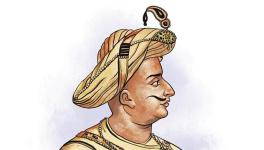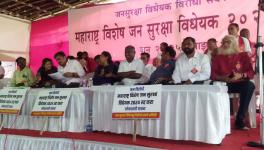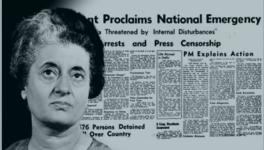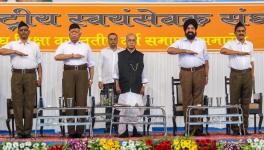Finding History in the Lives of Others
Image Courtesy: Amazon.in
In The Life and Times of George Fernandes (Penguin, 2022), Rahul Ramagundam attempts to write a post-independence political history of India by chronicling the life of political figure George Fernandes. To relay significant political processes in a new republic through any individual’s life is a challenging task that straddles the disciplines of biography and history. BR Nanda wrote in Biography as History: Indian Perspectives, edited by Vijay Ramaswamy and Yogesh Sharma (2009), about “a tendency to see history and biography as completely separate. In no university in the world is there a department for biography in a centre for historical research”. In “Biography as History: A Personal Reflection”, published in the Journal of Interdisciplinary History in 2010, Stanley Wolpert wrote that biography is the best form of history.
Lois W Banner’s “Biography as History”, in the June 2009 edition of American Historical Review, explains that until the 1970s, the biography genre was viewed with contempt. Only in the 1990s did New Biography emerge, somewhat closing the gap between biography and history. Banner said, “Reading biographies is fun, and writing them challenges academic historians to reach out to a public that seems to have a never-ending taste for reading about the lives of others.”
On the other hand, Nick Salvatore writes in “Biography and Social History: an Intimate Relationship”, published in Labour History in 2004, that the “recent turn to biography in labour and social history is most welcome, for it creates the possibility of a broader understanding of the interplay between an individual and social forces beyond one’s ability to control.” But he adds that a social biography demands disciplinary rigour and research that equally regards both the subject and their context seriously. This take is the most relevant to evaluating Fernandes’s detailed biography by Ramagundam.
The political ascendancy of Fernandes owes much to his trade union politics in Mumbai in the early decades of Independence, which Ramagundam explores in great detail. Over six chapters, he describes his rise and fall and innovative ways to organise the unorganised, be they taxi drivers, hotel workers or municipal employees. His assessment of Fernandes as a minister in charge of industries in 1977 and 1978 is also comprehensive. He encouraged the small and cottage sectors to generate employment, expanded the public sector, and gave the private sector a limited role. His criticism of business houses for neglecting research and development, and the rural tilt of economic policy at the time, including the District Industrial Centre programme, get particular appreciation in the book. Fernandes designed the DIC for Muzaffarpur in Bihar, from where he was elected to the Lok Sabha in 1977 while still in jail. The programme covered necessities from tube-well irrigation to other aspects of agricultural development.
Readers would appreciate the author for keeping in mind how quickly disillusionment set in among the people within a year of Fernandes winning the election. It is also evident from this book that he was among those few parliamentarians who preserve their private papers diligently, for Ramagundam has shared details from many letters that ordinary citizens wrote him. He also reproduces some correspondence Jayaprakash Narayan had with him about the prime minister. In one, Narayan complains that Morarji Desai has “failed in containing its perfidy”, referring to the RSS, and notes that it was “fomenting communal troubles”. Ramagundam adds, “It was true that inter-community relationships in the country had deteriorated in this period of Janata rule. Not only were RSS followers accused of indulging in anti-Muslim riots at Jamshedpur and Aligarh, but their ministerial nominees in the Bihar Cabinet were thought to be erasing all signs of their participation in those riots.”
We now come to at least five critical omissions in the book, which must be considered in the following editions. The meteoric rise of Fernandes in the 1960s and the rise of the Shiv Sena (at the behest of the ruling Congress party) sought to subdue and fragment the labour movement. That is why they overlapped with each other in time. Despite touching upon this aspect, Ramagundam leaves out the detail. On the role of the Shiv Sena, Mary F Katzenstein and others have published an essay, “The Rebirth of Shiv Sena” (The Journal of Asian Studies, May 1997), which could provide a valuable reference for the author and his readers.
Fernandes was often alleged to have been an agent of “foreign agencies”. The author mentions this aspect but ignores the RSS’ internationalisation of the anti-Emergency resistance and the role Fernandes played (or did not) in it. Ramagundam could have benefited from Edward Anderson and Patrick Clibbens’ “Smugglers of Truth: The Indian Diaspora, Hindu Nationalism and the Emergency, 1975-1977”, published by Modern Asian Studies, 2018. Ramagundam seems to have become a little harsh against Indira Gandhi, who “always had a foreign hand to crib about”. However, at least two significant studies retrospectively proved that the apprehensions about a foreign hand among Indira and her then-ally, the Communist Party of India, were entirely accurate. While Anderson and Clibbens demonstrate the international support RSS got, David Lockwood’s book on The Communist Party of India and the Indian Emergency (Sage) also establishes it.
Interestingly, the implications of these events have fully unfolded only now. Arvind Rajagopal has argued that with the “taint of the Gandhi assassination, the RSS was truly a political pariah. But after the Emergency, acquiring political power came within reach. The fortunes of secularism and of Hindutva were decisively changed thereafter”.
Ramagundam seems to have missed Fernandes’s desperate letters to JP and the RSS top brass closer to the end of the Emergency. He worried about the ill-preparedness of the anti-Congress forces for a possible forthcoming election. This correspondence, mainly from the JP Papers, is used by Rakesh Ankit in his 2016 essay, “Janata Party (1974–77): Creation of an All-India Opposition”. Oddly, Ramagundam does not mention Ramvilas Paswan even once in his book. He was a contemporary and fellow traveller in Fernandes’s anti-Congress politics, and, at least after 1977, their parliamentary lives centred almost exclusively in Bihar.
Other aspects of socialist politics since Independence have been ignored. The most comprehensive intervention on this topic remains Paul R Brass’s essay from 1976. Ramagundam refers to the Samajwadi Yuvajan Sabha but does not go into detail. This organisation awaits academic exploration. Indeed, the abovementioned omissions are even more surprising when Ramagundam remarks in the prologue, “Chronicling George [Fernandes]’s political career is significant for other reasons as well…his political choices reflect the compulsions and compromises inherent in a democracy. It is surprising how little we know about the counter-resistance to the National Emergency of the mid-1970s-the state and its institutions attempted to erase the Opposition’s actions in those nineteen months from social memory.”
Owing to these omissions, Fernandes’s eventual political fall into the lap of neo-Hindutva remains under-explored by Ramagundam. Notwithstanding these, this biography results from thorough research. The author has drawn deep insights and employed a little bit of psychoanalysis to decipher the personality, so very necessary in a biography. The articulation is quite lucid and eminently readable. It does say meaningful things about post-independence India. The story of the rise of a plebeian Christian from South India who becomes a prominent politician in Mumbai and the caste-ridden politics of Bihar is no small matter.
Fernandes evolved into an extensively well-read and powerful orator, a hard-working politician adept at organisational tasks and with great foresight for political prospects. His story is about how a Socialist-leaning liberal democracy offered opportunities to marginalised groups and classes. But it is also an aspect that especially needs a fresh look through comparison and contrast with today’s saffronised India. Biographer-historians must write many more such multifaceted characters of post-independence India. Ramagundam shows the way.
The author teaches modern and contemporary Indian History at Aligarh Muslim University. The views are personal.
Get the latest reports & analysis with people's perspective on Protests, movements & deep analytical videos, discussions of the current affairs in your Telegram app. Subscribe to NewsClick's Telegram channel & get Real-Time updates on stories, as they get published on our website.
























